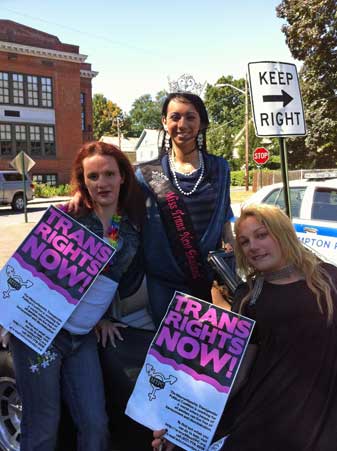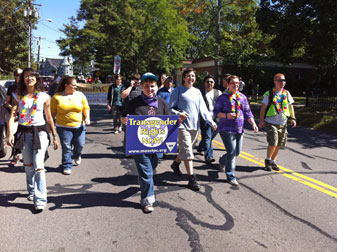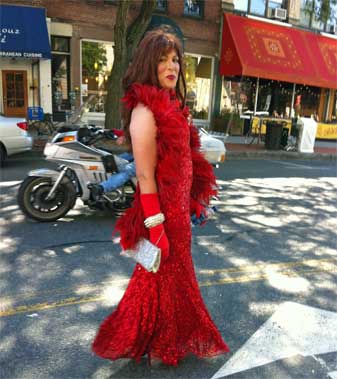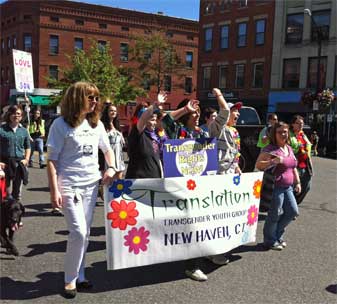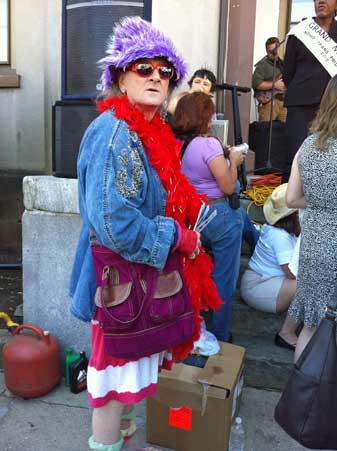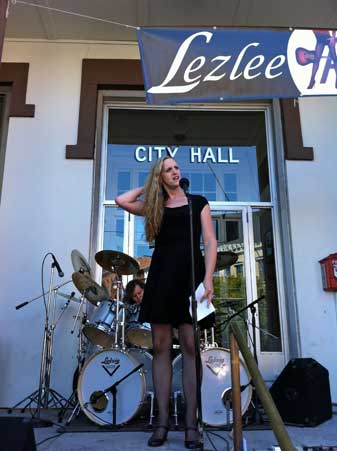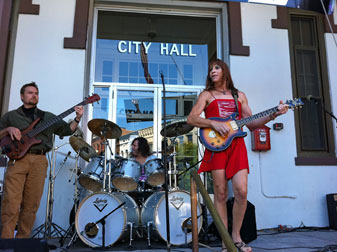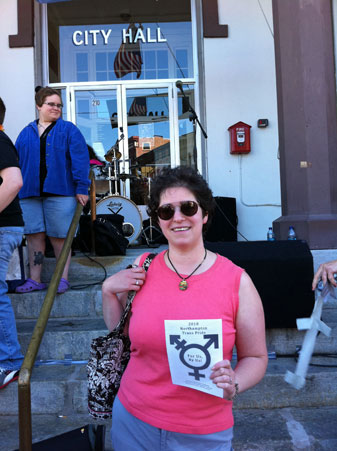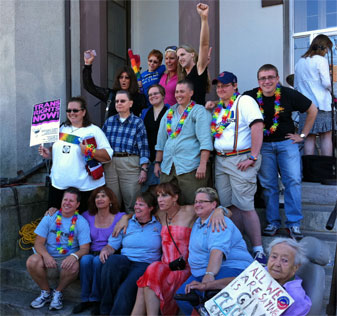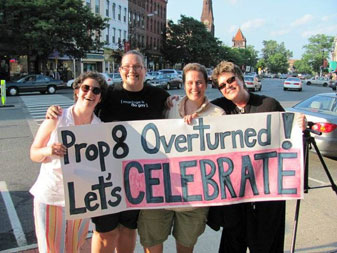My current favorite God-blogger, Prof. Richard Beck at Experimental Theology, blogged last month about “The Thomas Kinkade Effect“, i.e. why does so much contemporary Christian art suck?
The visual art on sale in Christian bookstores is dominated by kitsch and sentimentality. Obviously, this stuff sells well, which means a lot of folks may be suffering from theological confusion. They see the “Christian” label as serving the same purpose as the health-sensitive labels on products at Whole Foods: gluten-free, cage-free, hormone-free, etc. In other words, they’re shopping for art that is safe for Christians. No unredeemed suffering, no sexually arousing stimuli, no challenges to the ideals of home and heterosexual family.
Beck is always ready to ask the tough questions. Where other Christian culture-makers might rest their critique at the level of packaging–we need higher-quality depictions of the same thing!–he is willing to investigate whether some cherished beliefs might have negative secular consequences:
What might be artistically compromising Christian aesthetic judgments? Many think a root cause is theological. Specifically, when Christian artists depict the world they must wrestle with how they portray the brokenness they find there. In light of God’s grace should the artwork depict the way the world should be or will be at the eschaton? Or should the artist depict the brokenness, woundedness and suffering of our current existence? Take, for instance, the work of one of the most recognizable Christian artists, Thomas Kinkade. Kinkade has said that his idyllic paintings are portrayals of the world “without the Fall.” But many Christian artists wonder if this impulse is truthful to human experience and the activity of God’s grace in a broken world….
….The argument is made that good art, to be truthful, must present grace in the midst of the Fall….true beauty isn’t achieved by willfully removing the signs of death,
suffering or brokenness. True beauty aims to find God’s grace in
unlikely and painful places.
As an example, Beck reproduces one of Tim Lowly’s paintings of his severely handicapped daughter, in which suffering is juxtaposed with the compassion and hopefulness of the six women who hold up her body, like pallbearers or worshippers around the effigy of a saint.
I agree that this kind of artwork is a great improvement over sugary depictions of praying hands and country cottages. But does the implicit requirement to “find God’s grace” still keep Christian artists on too short a leash? What about art that depicts still-unconsoled suffering (“My God, my God, why have you forsaken me?”), speaking to those moments when we can’t yet see the silver lining in the mushroom cloud, and resent those “religious” friends who expect us to try? (Hello, Eliphaz, Bildad, and Zophar…) Or art that expresses outrage at the suffering inflicted by Christians and Christianity? Is that still Christian art?
Apparently not, according to the Catholic League. And they got the Smithsonian to agree with them.
Kittredge Cherry, whose Jesus in Love blog features spiritual art with GLBT and feminist themes, has the story, which has also been covered in the mainstream media:
In an outrageous and unprecedented act of censorship, the Smithsonian Institution recently removed a video by gay artist David Wojnarowicz from exhibition after a few hours of pressure from religious and political conservatives.
Titled “A Fire in My Belly,” the video combines various images of loss, pain and death as a metaphor for the suffering caused by AIDS. The four-minute video was denounced as anti-Christian “hate speech” by the Catholic League because it includes a scene of ants crawling over Jesus on a crucifix. Rep. John Boehner (R-Ohio), the incoming House speaker, called it a misuse of taxpayer dollars.
The video had been on display at the Smithsonian’s National Portrait Gallery in Washington, DC since Oct. 30 as part of the LGBT-themed show “Hide/Seek: Difference and Desire in American Portraiture,” the first national art exhibit about sexual orientation and gender identity in American art. Smithsonian president Wayne Clough decided to pull the video on Nov. 30, claiming that he didn’t want controversy to distract people from the rest of the exhibit.
A Smithsonian spokesperson said that this was the first time that the gallery has pulled an artwork from an exhibit because of complaints from the public….
Read more and view the controversial video here. I thought it was a powerful surrealist horror film as well as a prophetic critique of religion from within.
In my opinion, Wojnarowicz was not using Christian imagery as a cheap attention-getter. The religious references, such as the eerie soundtrack of a woman intoning passages from Leviticus about unclean body fluids, are directly relevant to the artist’s point that the church has contributed to the AIDS crisis by its ostracism of gays. I took away the message that AIDS patients are modern-day lepers and that Jesus suffers along with them. If we are scandalized by Christ’s entry into the experience of uncleanness and decay, we show ourselves to be the heirs of the Pharisees.
As Kitt observes, “By putting ants on a crucifix, it fits into the respected Christian
tradition of showing Jesus’ persecution and suffering on the cross in
grisly detail. Angry critique of religious institutions is also a
time-honored Christian tradition established by Jesus himself.”
I think that even the more sophisticated venues showcasing self-described “Christian art” would shy away from Wojnarowicz’s video because their gatekeepers are still thinking that Christian equals evangelizing. There’s no place in their catalog for art that depicts Christianity as the problem, not the solution.
However, that’s the kind of art that we as Christians particularly need to see. It can show us where we have wronged someone in the name of our faith, causing them to think of horror and decay, not love and grace, when they see the symbols that we wave around so proudly.
